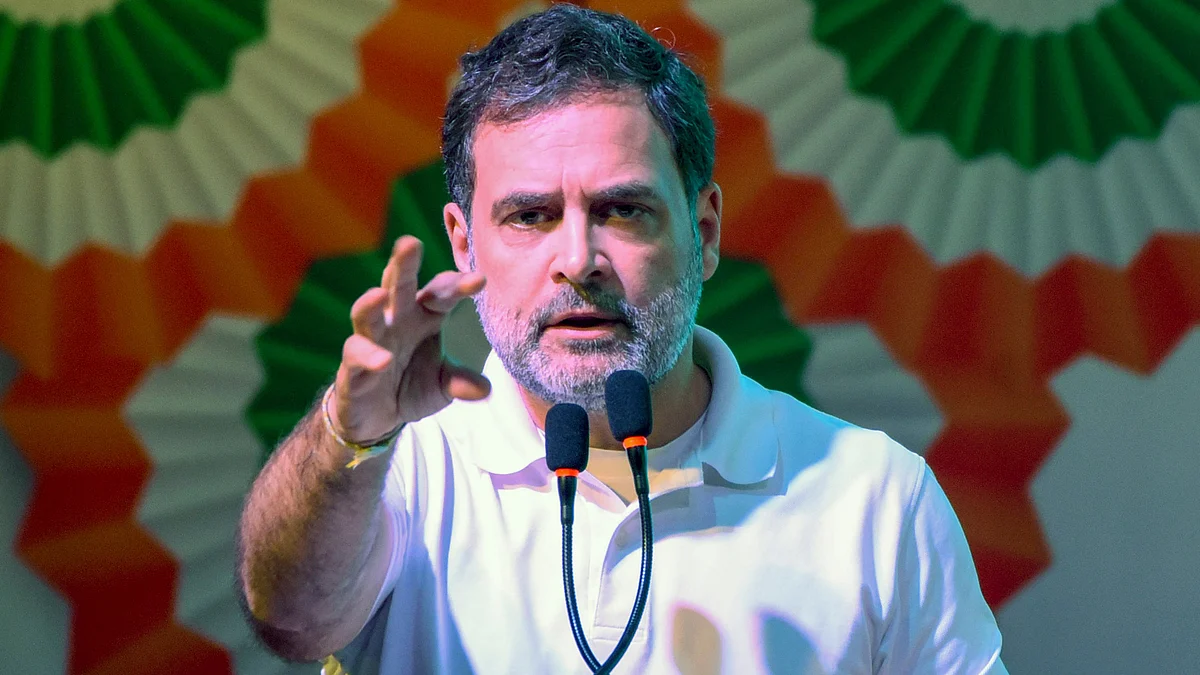Rahul Gandhi to take part in DMK student wing protest against UGC today
On 10 January, the UGC chairman defended the revised rules, emphasising that the process "eliminates ambiguity and ensures transparency"

In a significant political pushback against the University Grants Commission (UGC) draft rules, Congress leader Rahul Gandhi, along with Samajwadi Party chief Akhilesh Yadav and various MPs from the DMK, will take part in a protest in New Delhi on Thursday, 6 February.
The DMK's student wing will be protesting against the UGC draft rules at 10 a.m. at Jantar Mantar in the national capital, joined by various INDIA bloc leaders, that effectively give governors (chancellors) broader powers in appointing vice-chancellors to state-funded universities.
Tamil Nadu Legislative Assembly passed a resolution on 9 January, urging the withdrawal of the draft rules related to the implementation of the National Eligibility cum Entrance Test (NEET) and its impact on admissions in the state.
Speaking in the Assembly, Tamil Nadu CM M.K. Stalin said, "This Assembly considers that the recent UGC draft rules should be taken back. They are an assault on the idea of federalism and they affect Tamil Nadu's higher education system."
Stalin also wrote to Union education minister Dharmendra Pradhan seeking the withdrawal of the notification and asked chief ministers of Opposition-ruled states to pass resolutions against the UGC draft rules in their respective Assemblies.
The rules envisage allowing people with non-academic backgrounds including from the private sector to be chosen for the post, which states fear will embolden the BJP-led Centre to appoint vocal supporters of its ideology who might lack necessary academic and administrative experience.
Earlier, on 10 January, DMK's student wing held a protest at Valluvar Kottam, Chennai, Tamil Nadu, against the UGC draft rules, claiming that they are against the spirit of federalism.
According to UGC's new draft guidelines, candidates can qualify for faculty positions at higher institutions by clearing the UGC-NET in a subject of their choice, even if their undergraduate and postgraduate degrees are in different disciplines.
The guidelines also propose changes to the selection process for vice-chancellors, including the expansion of eligibility criteria to include professionals from academia, research institutions, public policy, public administration, and industry.
On 10 January, UGC chairman M. Jagadesh Kumar defended the revised rules, emphasising that the revised process "eliminates ambiguity and ensures transparency".
He added that the committee will have three members: one nominated by the chancellor, one by the UGC Chairman, and one by the university's executive council or senate.
"This structure eliminates ambiguity and ensures a more transparent process," Kumar reiterated, addressing criticisms from sections of teachers and state governments.
Follow us on: Facebook, Twitter, Google News, Instagram
Join our official telegram channel (@nationalherald) and stay updated with the latest headlines
